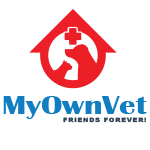As the COVID-19 outbreak continues to rise, our top priority is the health and safety of our community, staff, clients and pets.
In order for us to stay open and available to help your pet, our veterinary team must stay safe and healthy. We have implemented additional precautionary measures to protect our staff and clients and we wrote a blog article to explain some of the most frequently asked questions about coronavirus.
Pets and Coronavirus Disease 2019 (COVID-19)
- Coronaviruses are a large family of viruses. Some cause illness in people and others cause illness in certain types of animals.
- We do not have evidence that companion animals, including pets, can spread COVID-19.
- We do not have evidence to suggest that imported animals or animal products imported pose a risk for spreading the coronavirus in Australia.
Coronaviruses are a large family of viruses. Some coronaviruses cause cold-like illnesses in people, while others cause illness in certain types of animals, such as cattle, camels, and bats. Some coronaviruses, such as canine and feline coronaviruses, only infect animals and do not infect humans.
Can my pet contract the COVID-19 coronavirus?
According to organizations such as the AVMA and the World Organisation for Animal Health, at this point, we do not have evidence that animals such as dogs and cats become ill from this virus. It’s important to remember that viruses can sometimes infect a species but not cause illness in that species, nor become transmissible to others.
AVA President Julia Crawford video message: companion animals and COVID-19
AVA President Dr Julia Crawford has released a video message today (23rd of May 2020), regarding the implications of the COVID-19 pandemic for Australian pet owners and veterinarians.
Dr Crawford has provided much needed up to date information, guidance and above all assurance in what is a rapidly evolving situation.
Dr Crawford stated all current evidence supports the fact that the spread of COVID-19 in the human population is due to close human to human contact and that there is no evidence that pets are capable of spreading the disease to humans. The reported case of the 17-year-old Pomeranian dog in Hong Kong that had initially been suspected of contracting the virus after contact with an infected human, has since been shown, by follow up testing, to not have any measurable antibodies to the virus.”
How to stay healthy around animals
In Australia, there is no evidence to suggest that any animals, including pets, livestock, or wildlife, might be a source of COVID-19 infection at this time. However, because all animals can carry germs that can make people sick, it’s always a good idea to practice healthy habits around pets and other animals.
- Wash your hands after handling animals, their food, waste, or supplies.
- Practice good pet hygiene and clean up after pets properly.
- Avoid sharing food with your pets or letting your pets kiss or lick your face or mouth.
- Take pets to the veterinarian regularly and talk to your veterinarian if you have questions about your pet’s health.
How to protect pets if you are sick
If you are sick with COVID-19 (either suspected or confirmed), you should restrict contact with pets and other animals, just like you would around other people. Although there have not been reports of pets or other animals becoming sick with COVID-19, it is still recommended that people sick with COVID-19 limit contact with animals until more information is known about the virus. This can help ensure both you and your animals stay healthy.
When possible, have another member of your household care for your animals while you are sick. Avoid contact with your pet including, petting, snuggling, being kissed or licked, and sharing food. If you must care for your pet or be around animals while you are sick, wash your hands before and after you interact with them.
For more information visit these websites:
https://www.health.gov.au/news/health-alerts/novel-coronavirus-2019-ncov-health-alert
https://www.ava.com.au/coronavirus/
Your friend and vet expert,
MyOwnVet





















